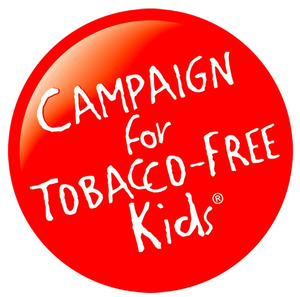Federal Court Upholds Key Provisions of New Tobacco Regulation Law; Government Should Appeal Two Provisions That Were Struck Down
WASHINGTON, Jan. 5 /PRNewswire-USNewswire/ -- Following is a statement of Campaign for Tobacco-Free Kids, American Cancer Society, American Cancer Society Cancer Action Network, American Heart Association, American Lung Association and American Legacy Foundation:
(Logo: http://www.newscom.com/cgi-bin/prnh/20080918/CFTFKLOGO)
In a significant victory for public health, a federal judge in Kentucky today upheld most key provisions of the new law giving the U.S. Food and Drug Administration (FDA) the power to regulate tobacco products.
The judge upheld critical provisions of the law that:
- Require large, graphic health warnings on cigarette packs;
- Prohibit tobacco companies from making health claims about tobacco products without FDA review; and
- Ban several forms of tobacco marketing that appeal to children, including brand name sponsorships, tobacco-branded merchandise such as caps and t-shirts, free samples of tobacco products and free gifts with purchase.
Importantly, the court also upheld the authority of federal, state and local governments to impose additional regulations on tobacco products and marketing beyond those specified in the law, and nothing in the decision impacts the authority of FDA to enact further restrictions on tobacco marketing to protect the public health.
It is disappointing, however, that the judge struck down two provisions of the law: one that bans the use of color and imagery in tobacco advertising in locations viewed by large numbers of youth and the second that prohibits claims implying that a tobacco product is safer because of FDA approval.
We believe that the judge's conclusions on these two provisions are based on a misinterpretation of the law and strongly urge the government to appeal. With regard to the ban on the use of color and imagery in tobacco advertising, this provision is constitutional because it serves the compelling government interest of discouraging tobacco use by children and is narrowly tailored to serve that interest. With regard to the prohibition on claims implying FDA approval, the judge struck down the provision because he misinterpreted it as applying broadly to any speaker, when it applies solely to commercial speech by tobacco companies and their emissaries. Even if the judge's decision to strike down these two provisions is upheld on appeal, the decision leaves room for the FDA to enforce them in ways that address the court's concerns.
We are heartened that the judge today not only upheld the vast majority of the provisions in the new tobacco regulation law, but also provided strong legal support for science-based regulation of tobacco products and paid close attention to Congress' findings in enacting the law. This ruling is an important step toward ending the special protection the tobacco industry has enjoyed for too long and finally regulating tobacco products to protect our children and the nation's health. We look forward to the FDA effectively implementing the new law. Tobacco products remain the nation's number one cause of preventable death, killing more than 400,000 Americans and costing $96 billion in health care costs each year.
The ruling by U.S. District Court Judge Joseph H. McKinley can be found at: http://www.tobaccofreekids.org/pressoffice/district_court_opinion_01052010.pdf.
Eleven public health and consumer advocacy organizations have filed friend of the court (amicus) briefs in support of the new law. These groups are the Campaign for Tobacco-Free Kids, American Cancer Society, American Cancer Society Cancer Action Network, American Heart Association, American Legacy Foundation, American Lung Association, American Medical Association, American Public Health Association, Kentucky Medical Association, Oncology Nursing Society and Public Citizen.
SOURCE Campaign for Tobacco-Free Kids
WANT YOUR COMPANY'S NEWS FEATURED ON PRNEWSWIRE.COM?
Newsrooms &
Influencers
Digital Media
Outlets
Journalists
Opted In





Share this article